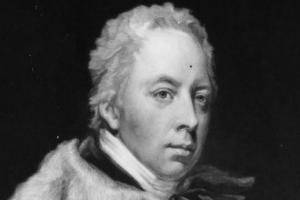Go To Section
LOWTHER, William (1757-1844), of Uffington, Lincs.
Available from Boydell and Brewer
Family and Education
b. 29 Dec. 1757, 1st s. of Rev. Sir William Lowther, 1st Bt., and bro. of John Lowther. educ. Westminster 1771; Trinity, Camb. 1776. m. 12 July 1781, Lady Augusta Fane, da. of John, 9th Earl of Westmorland, 2s. 4da. suc. fa. as 2nd Bt. 15 June 1788; on d. of his cos. James, 1st Earl of Lonsdale, to visctcy. and barony of Lowther of Whitehaven and to Lowther estates in Cumb. and Westmld. 24 May 1802; cr. Earl of Lonsdale 7 Apr. 1807; K.G. 18 July 1807.
Offices Held
Ld. lt. Cumb. and Westmld. 1802- d.
Biography
William Lowther, like the rest of the Lowther Members, followed the politics of his cousin, Sir James Lowther, 5th Bt., but he seems to have shown a tendency towards independence. On 26 Nov. 1781 Sir James ordered him to attend Parliament ‘constantly’ or to resign, and on 26 Jan. 1782 wrote: ‘I cannot help saying what I should not have done had not your behaviour urged it, that for your parliamentary conduct you are accountable to me.’ He concluded his letter with a demand that Lowther should join his militia battalion for an unspecified time. Lowther replied, 27 Jan.: ‘It was my earnest wish to remove the cause of your displeasure ... [but] as it is impossible for me to make concessions when I know not the fault I have committed, I fear you will still be averse to a reconciliation.’ And he offered to resign rather than join the militia out of turn. He explained to his father, 29 Jan. 1782:
From the treatment I have received for these last two months, I have no reason to believe that he ever intended me any kindness but that, as from certain circumstances, I might be of use to him, a temporary reconciliation would most likely take place, till the business was concluded, and after a long tiresome attendance I should most probably find myself in the same disgrace I am at present ... The duty I owe my country when she requires it, is first due to her—but Sir James forgets that I have now concerns of my own, and in my sphere of life, inattention to my wife, my family, and my own affairs, would be injury and injustice to myself and though I might not contribute to promote the public good yet I should be a very bad member of the community without it.1
But Lowther did not resign, and his connexion with Sir James continued in spite of this exchange. With the rest of Sir James’s group he supported Pitt to whom he was also personally attached. During the debate on Pitt’s Irish propositions, 12 May 1785, in one of his only two reported speeches, Lowther ‘declared himself to be one of those who did not understand the resolutions, yet who was ready to vote directly for the question, upon grounds of confidence in the minister’.2 Lowther, with Sir James’s other Members, voted with Opposition on the first division on the Regency, 16 Dec. 1788, but after a later division wrote to Pitt, 19 Jan. 1789:3
I desired my brother to explain to you the cause of my absence on the late important occasions—but I cannot refrain congratulating you on your success in the House of Commons, and on this sense the whole nation seems to entertain of your conduct. It is a matter of serious concern to me that Lord Lonsdale should have adopted sentiments on which I cannot possibly coincide. I consider it as a great misfortune that the particular circumstances of my connection with the person to whom I am indebted for my parliamentary situation have placed me in this predicament, but you may rest assured (however unimportant it is) of my firm attachment to you.
He did not vote in the division of 11 Feb. 1789. At the general election of 1790 Lowther was dropped by Sir James.
Lowther was described by Wraxall4as ‘a man of very moderate parts’, and he seems to have been without political ambition. In 1802 he inherited vast wealth as well as a viscountcy from Sir James Lowther. He died 19 Mar. 1844.

